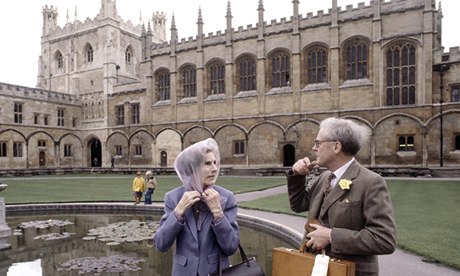
Nobody writes letters, proper letters, any more. People blog or email, tweet or share across the whole gamut of social media – but write, actually write, thousands of erudite words, joining arguments, seeking information, sketching vignettes from a working life? That's gone. Which is why this selection from Hugh Trevor-Roper's correspondence, churned forth ceaselessly over nearly half a century, is so beguiling.
There's a life encapsulated here: the great historian puffed with success after The Last Days of Hitler; the academic wheeler-dealer, manoeuvring to make Harold Macmillan chancellor of Oxford University; the devoted husband missing his darling wife, Xandra; the expert humiliated, grovelling to the editor of the Sunday Times for not spotting the fake Hitler diaries; the lonely, almost blind, old man awaiting death. What he thinks, indeed how he feels, is more personal, and sometimes more pathetic, than any lecture delivered in full regalia to an audience of awe-struck students.
Letters, of course, bring their own problems in train when revealed to a wider audience. One is that, though two expert editors set the context here, you often want the full Monty, not Trevor-Roper's single response. Another is that the assumed privacy of the exchanges gives bitchiness and grandiosity full rein: the regius professor, master of Peterhouse and lord of the Thatcher realm we meet in these pages often sounds like a Rod Liddle column on a bad day. What does he think of his dear friend AJP Taylor? Tom Sharpe's Porterhouse Blue couldn't have blended sugar and acid more silkily. The essential, smarming, stinging introversion of Oxbridge existence lies wholly exposed.
Perhaps, at the close, you don't exactly warm to this Lord Dacre of Glanton. But at least you understand him, and his world, far more acutely. And maybe you think, as the hundredth letter of ideal, sometimes riveting bedside reading ends, that it is good Trevor-Roper lived when he did and performed in this vein. For, crudely put, he wrote far too many letters and far too few serious books. His letters were strength and weakness. This volume isn't peripheral, but central to a career of fluctuating accomplishment. Just think how he'd have coped in the age of tweets.

